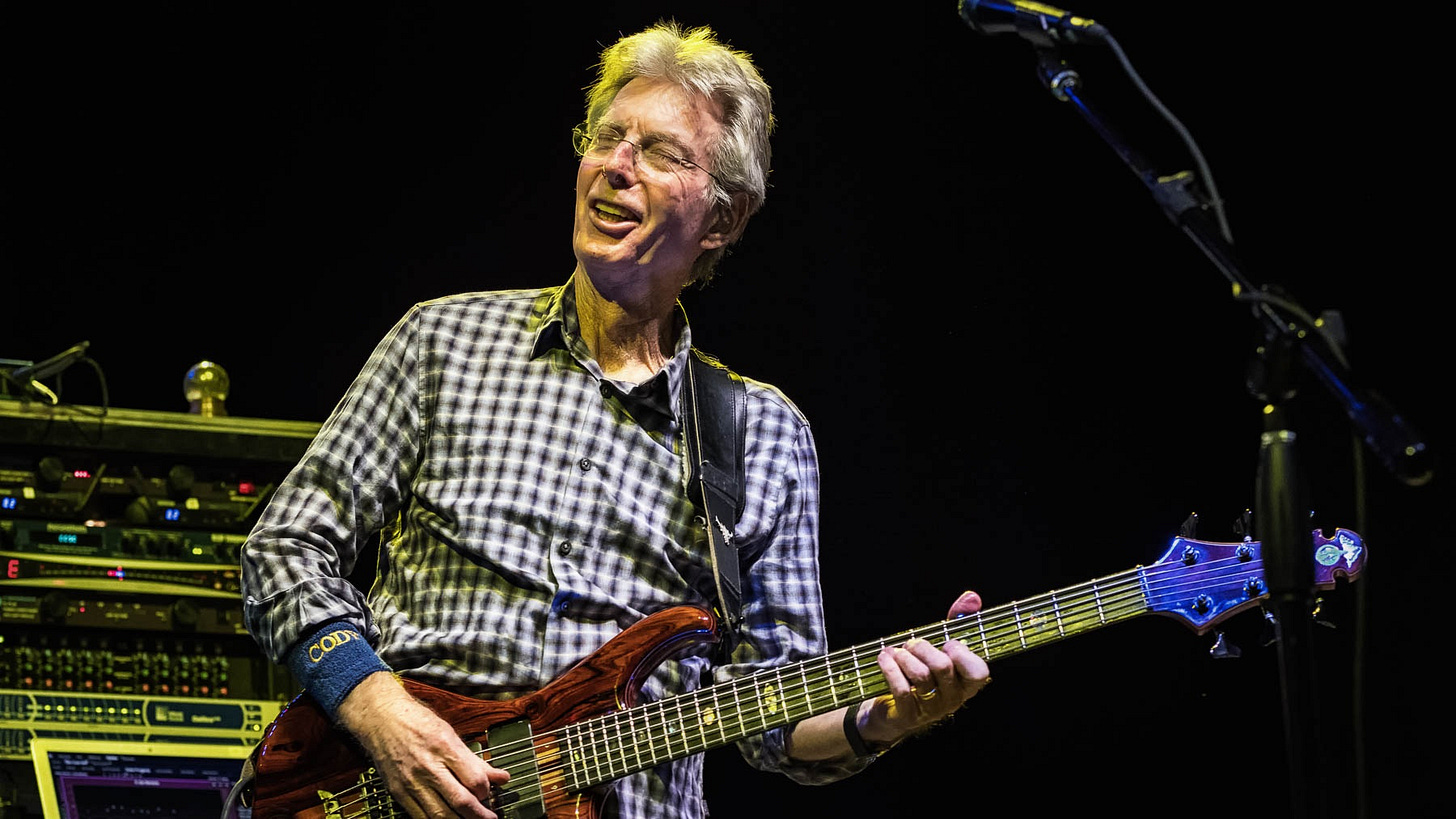Phil Lesh: Learning from Adversity
Love sustained the Grateful Dead mainstay through many health challenges
Phil Lesh, who died Friday at 84, was one of only a few bassists in rock whose style was instantly recognizable on nearly everything he did. That may have been because he didn’t really play bass before a new acquaintance who was just as excited about the variety of music, Jerry Garcia, asked him to join his band, that would become the Grateful Dead.
Rather than nail down the rhythm section and provide a bottom, as many bass players do, he’d go an opposite way, providing counter-melody with a lighter, always inventive touch that helped ignite the band, at its best, into soaring improvisatory heights.
His inspirations came from Bach, but also Charles Mingus and John Coltrane, whose recordings he shared with his bandmates to widen their dimensions as well. In rock, he listed as influences the furious playing of Jack Bruce in Cream but also the keen playing of Jefferson Airplane’s Jack Casady, who counterbalanced the guitarwork of Jorma Kaukonen in that band just as Lesh did with Garcia in the Dead.
Lesh’s other contributions to the band included songwriting and occasional harmonies. In addition to collaborating on a lot of concert mainstays, from “St. Stephen” and the elusive “Dark Star” he added a mellow contemplative tone on enduring songs on which he shared a songwriting credit — “Attics of My Life,” “‘Till the Morning Comes” and especially “Box of Rain,” inspired by his own father’s death from cancer.
Oddly, Lesh didn’t play bass on that song (David Talbert of the New Riders of the Purple Sage did, as Lesh played acoustic guitar). What was more unusual was that Lesh sang lead on the song - with lyrics provided by Robert Hunter. Though his keening tenor was a welcome additional voice to the Dead, it was hardly ever heard, especially after suffered vocal cord damage.
He stayed with the Grateful Dead its entire three decade career that came to an end when Garcia died in 1995 at 53. Lesh participated in the post-band variations The Other Ones and The Dead. But he also fronted his own band.
I spoke to Lesh in November 1999, before his band Phil Lesh & Friends was to embark on a double-headlining tour with Bob Dylan.
Lesh had undergone a liver transplant less than a year before after becoming seriously ill from a chronic hepatitis C infection. Out to promote the first album from Phil Lesh & Friends, titled And Love Will See You Through, he was living that love.
“I owe my recovery and health to the love sent to me by Deadheads,” he said. “That was absolutely palpable and really saved my life.”
Before the surgery, fans had organized something called Five Minutes for Phil.
“I was very touched,” he said. “People send me emails all the time that they are praying for it. It’s very moving.”
So on that tour, and probably for all of his career, he pledged to “open the doors to all kinds of music. I think it’s just as interesting what goes on with the performer and the audience between songs as the songs themselves.”
Getting a call from Dylan, with whom the Dead had toured in 1987, resulting in the 1989 live album Dylan & the Dead, was big for Lesh. He said he was “deeply touched that a bass player who has only been playing theaters in his hometown for the last few years has been treated so honorably by someone I respect as much as any of my artistic heroes, past and present. When his people called and asked if I was interested, I said yes immediately. He’s the man.”
He was also flattered that Dylan suggested they co-headline, though Lesh says, “I would have been thrilled to tour with him as an opener.”
As it turned out, a coin toss decided who’d open the shows; Lesh won and opted to start the shows, since he was traveling with his sons, then 10 and 13.
Among the Dead favorites in that tour were “St. Stephen,” “The Eleven,” “Eyes of the World,” “Mountains of the Moon,” “Alabama Getaway,” “Friend of the Devil” and “Mississippi Half-Step Uptown Toodeloo.”
In a continuation of the tour the next summer in Hartford, with Billy Payne and Paul Barrerre from Little Feat, Lesh included “Dancing in the Street,” “New Speedway Boogie,” “Franklin’s Tower” and “Endless Highway.”
He continued to play off and on with his old bandmates in configurations that conjured up the Dead, in song or personnel. But he but also fronted a new lineup of Phil Lesh and Friends that included his sons, now grown into musicians as well.
Lesh played as recently as August, at a festival in San Rafael, Calif.
And while he was shaken by that liver transplant a quarter century ago, he’d be treated for prostate cancer in 2006, bladder cancer in 2015 and had to pull out of shows in 2019 due to back surgery.
The adversity taught him something along the way.
“Every human being is precious,” he said. “Every day is a gift from God, and you can see pretty quickly where the B.S. lies.”
Or in the words that Hunter gave to his “Box of Rain:”
Sun and shower, wind and rain
In and out the window
Like a moth before a flame


